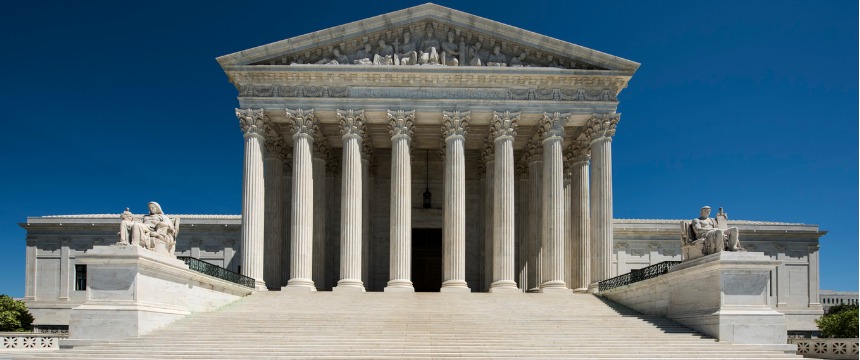U.S. Supreme Court Rules in Favor of Arbitration Potentially Altering Legal Strategies for Wide Range of Cases

Special thanks to Ryan Chatoo, a summer associate in Foley’s Miami office, for his contributions to this article.
On June 23, 2023, in Coinbase, Inc. v. Bielski, Justice Kavanaugh authored the opinion of the United States Supreme Court in a 5-4 decision holding that a district court must stay its proceedings in a case pending an appellate court decision on whether that case belongs in arbitration or district court.
Abraham Bielski brought a class-action lawsuit against Coinbase on behalf of Coinbase users who claim that Coinbase did not replace money stolen from their user accounts. Coinbase moved to compel arbitration in the U.S. District Court for the Northern District of California, arguing all Coinbase user agreements contain arbitration clauses requiring that any and all disputes between the user and Coinbase be arbitrated. The District Court denied the motion.
Coinbase filed an appeal to the U.S. Court of Appeals for the Ninth Circuit, challenging the District Court’s denial of the motion. While a party usually cannot file an appeal before a final judgment at trial, §16(a) of the Federal Arbitration Act (FAA) allows a party to appeal a denial of a motion to compel arbitration before trial. Concurrent with the appeal, Coinbase also moved to stay the District Court’s proceedings pending the Ninth Circuit’s decision. The District Court denied this motion as well, and the Ninth Circuit agreed, finding that appealing a denial of a motion to compel arbitration does not entitle a party to an automatic stay of district court proceedings.
Disagreeing with the Ninth Circuit, the U.S. Supreme Court reversed the Ninth Circuit’s ruling and held that appealing a denial of a motion to compel arbitration entitles a party to an automatic stay of district court proceedings. Justice Kavanaugh relied on U.S. Supreme Court precedent set by Giggs v. Provident Consumer Discount Co., which held that an appeal “divests the district court of its control over those aspects of the case involved in the appeal.” Justice Kavanaugh further analogized two Seventh Circuit decisions to build upon and conclude affirmatively that appealing a denial of a motion to compel arbitration divests the lower court of control over the entirety of the case during the pendency of the appeal. In Bradford-Scott Data Corp. v. Physician Computer Network, Judge Easterbrook wrote the opinion of the Seventh Circuit stating that whether “the litigation may go forward in the district court is precisely what the court of appeals must decide.” In Apostol v. Gallion, the Seventh Circuit held that it made no sense for a trial to proceed while an appellate court decides if a case belongs at trial in the first place. Thus, the Griggs principle, Justice Kavanaugh found, divests the district court of control over a case pending a court of appeals decision on whether that case belongs in arbitration instead of district court.
Justice Kavanagh used several more sources of authority in his opinion. He stated that the common practice for courts of appeals is to stay district court proceedings pending an appellate court decision on whether a case belongs in arbitration. Leading treatises also agree that a district court should stay proceedings pending a decision on whether a case belongs in arbitration. Furthermore, allowing district courts to proceed pending a decision on whether a case belongs in arbitration defeats the purpose of arbitration. Arbitration allows parties to resolve disputes for less expense, with less intrusive discovery, and in an overall more efficient manner than a trial. Even if the appellate court determines a case belongs in arbitration, the benefits of arbitration are lost if the parties must prepare for a possible trial. In anticipation of a possible trial, the parties would have already spent time and money on filing motions, attending hearings, trial discovery, and other steps in the costly process of preparing for trial.
Justice Jackson authored a dissenting opinion, with Justice Kagan and Justice Sotomayor joining in full, and Justice Thomas joining in Parts II, III, and IV of the dissent. Justice Jackson asserted that Congress did not impose an automatic stay provision in the FAA, and there is no background legal principle imposing an automatic stay in this case. Additionally, she argued the Griggs principle properly applied to this case would only prevent the district court from revisiting the motion to compel arbitration during the appeal. Justice Jackson further claimed that the majority’s focus on protecting parties seeking arbitration harms both the public interest and the opposing party. For instance, crucial evidence could be lost if discovery is delayed during a stay of district court proceedings. Lastly, Justice Jackson argued that an automatic stay rule encourages defendants to appeal for a variety of issues and hope the appeal will trigger a mandatory stay to slow down litigation and compel the plaintiff to settle.
Practitioners and litigants should take note of this opinion, which will have far reaching implications in the tactic used by some to try to force trial through filing a claim in court even when there is an arbitration provision on point or potentially on point. Interestingly, whether arbitrators will also adopt a wait and see approach when there is a motion to compel granted and such an order is appealed should be closely monitored. After all, the inverse could also be true. If a claim is filed in court, and a motion to compel arbitration of that suit is successful, a party appealing the granting of the motion to compel may be forced to arbitrate an entire dispute he or she never entered into or agreed to arbitrate.
